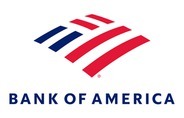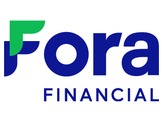Best Business Loan Companies
 National Funding(1)
National Funding(1) Funding Circle(0)
Funding Circle(0) QuickBridge(0)
QuickBridge(0)
A business loan is financing specifically for entrepreneurs and business owners to aid with business startup costs, expansion fees or cash flow issues. These loans can be used for a wide range of purposes, such as investing in new equipment or inventory, hiring staff or even moving to a larger building.
Getting your business loan from a reputable lender can be the difference between your company’s success and failure. To help, we've gathered the top companies so you can choose the best business loan company for your needs.
- Our recommendations are based on what reviewers say.
- 4,426,419 reviews on ConsumerAffairs are verified.
- We require contact information to ensure our reviewers are real.
- We use intelligent software that helps us maintain the integrity of reviews.
- Our moderators read all reviews to verify quality and helpfulness.
Read business loan company reviews | ||||||
|---|---|---|---|---|---|---|
Experienced lender, financing small businesses since 1999. Application process takes minutes. Working capital loans up to $500,000. Flexible repayment terms. Dedicated funding specialist to help you through the process. |  | |||||
Peer-to-peer lending platform for small businesses. Secured loans and lines of credit. Up to $500,000 per business. Terms between six months and 10 years. No prepayment penalty. Available in all 50 states. |  | |||||
Short-term loans up to $400,000. Funds deposited into your account quickly. No hidden fees. Can apply with bad credit. Potential to renew your loan for more money. |  | |||||
Online finance platform. Offers working capital loans and equipment financing. Interest-free for 30 days. Low starting interest rates. Loans up to $500,000. Same-day funding. Business credit monitoring available. | ||||||
Business loan referral service. Caters to startups and new entrepreneurs. Easy application process. Quick approvals. Variety of loans, including term loans, merchant cash advances and lines of credit. Rates and fees not disclosed. |  | |||||
Business loan marketplace offering term loans, lines of credit and cash advances. Approval within 24 hours to one week. Simple online application process. No information on fees, APRs or loan amounts. Eligibility criteria varies. |  | Get Started | ||||
Fintech company offering business lines of credit and business checking accounts. Credit lines up to $250,000. Funding in as little as 24 hours. Few fees. Strict eligibility requirements. Not available in all states. | ||||||
Loan amounts from $1,000 to $40,000. Select from three- to five-year terms. APRs from 9.57% to 35.99%. Minimum credit score varies. Origination fee up to 8%. No prepayment fee. | ||||||
Headway Capital provides access to credit in order to run your small business more efficiently. We are part of Enova International, a leading online lender, which has been providing loans to individuals for over 10 years. | Chat with a ConsumerAffairs decision guide Live agent | |||||
Biz2Credit offers three financing options — term loans, working capital and commercial real estate (CRE) loans — that range from $25,000 to $6 million. Applications take minutes, and decisions can take as few as 24 hours. |  | Chat with a ConsumerAffairs decision guide Live agent | ||||
What is a business loan?
A business loan is money that an entrepreneur, small business or commercial entity borrows from a lender, with an agreement to repay it over a specified period with interest. These loans are typically used to fund major business expenses like starting a new project, expanding operations, purchasing inventory or equipment or managing cash flow.
While similar to a personal loan, business loans are usually for larger amounts, have higher interest rates and require more requirements for approval.
Types of business loans
There are several types of business loans, including the following:
- SBA loan: Backed by the Small Business Association (SBA), this is a government loan guaranteed to small businesses, including startups, that need additional support and help securing financing.
- Business line of credit: Gives companies with ongoing financial needs the opportunity to borrow on an as-needed basis.
- Invoice financing: Allows companies to get immediate cash based on the amounts due from their customers.
- Equipment leasing: Certain lenders specialize in equipment financing. These lenders may fund leasing or the purchase of business equipment.
- Merchant cash advance (MCA): A type of financing in which a business receives an upfront sum of cash in exchange for a portion of its future credit and debit card sales.
Business loans can come in either short-term loans that last for a maximum of three years or long-term loans that last between 20 and 30 years.
What are the requirements for a small business loan?
Requirements will vary by lender, the type of loan and how much you will be borrowing. For example, requesting a business line of credit for $50,000 might be easier to obtain than a million-dollar small business loan.
Here are some common factors lenders look at:
- Personal/business credit score: Lenders typically require a good personal credit score, usually 680 or higher, or an excellent business credit score.
- Time in business: Many lenders want to see that you have been in business for over a year, but other lenders will require a company to be in business for between two and three years to qualify.
- Financial documents and revenue: Have your business bank statements and balance sheets ready. You will also need to provide documentation of your business’s annual revenue, profit and any debt you have.
- Amount and use of funds: Lenders want to know how much you need to borrow and why. Depending on the loan, you may need to specify how you plan to use the funds, such as for working capital, purchasing equipment or buying real estate.
» MORE: How to get a business loan
Pros and cons of business loans
A business loan can give you the funds to take your company to the next level, but it does come with its own unique risks. Consider the following pros and cons of business loans before deciding whether it is right for your business.
Pros
- Larger borrowing limits: Business loans can come with larger limits than other loan types, allowing for expansion and equipment purchases.
- Longer terms: Business loans usually offer longer repayment terms, which can make monthly payments more manageable
- Build business credit: Regularly paying off a business loan can help a business build its credit score, which can be beneficial for future financing.
- Variety of products: Find financing to meet your unique business needs.
Cons
- Strict requirements: Business loans often require extensive documentation, and businesses need to meet strict eligibility criteria.
- Risk of default: If a business fails to repay the loan, it could lead to default and put the company in hot water financially.
- Not ideal for startups: New businesses or startups may find it challenging to secure a business loan due to a lack of credit history or collateral.
- Lack of repayment flexibility: Business loans usually have set terms and conditions, and there is little flexibility when it comes to repayment.
How to choose a business loan company
“Securing a loan for your business goes way beyond just locking in an interest rate,” said Joe Camberato, CEO and founder of National Business Capital. “You should make sure that the type of financing you're eyeing fits your business goals like a glove. Don't get swept up in the allure of a business line of credit's flexibility if your plans don't demand that kind of access to capital.”
When considering which business loan company to choose, you must first look at your company’s current financial situation, needs and goals. Any financing you take on should be done to help you grow rather than put you in a sticky situation money-wise.
Weigh the following factors when deciding on a specific business loan or lender.
Fixed or variable interest rate
Set maturity date
Collateral requirement
Repayment schedule
Limitations on additional debt
Flexible terms
Business loan alternatives
If you decide that a business loan is not the right step for your company, or if you aren’t in the position to qualify for a business loan, there are other options available.
- Business credit cards: Business credit cards can be used for everyday expenses and often come with perks like rewards or cash back. With a business credit card, you will be limited to how much you can spend, and some cards require full repayment each month.
- Peer-to-peer (P2P) lending: In P2P lending, businesses can borrow directly from individual investors, often through online platforms. The number of legitimate P2P lenders is small, but Funding Circle is available for small- and medium-sized businesses that have been around for over two years.
- Crowdfunding: Businesses can raise money from a large number of people, usually through an online platform. Keep in mind that crowdfunding sites do take a portion of profits and might hold you to specific requirements.
- Personal loans: If your credit score is very good or excellent, a larger personal loan could be helpful for funding your business expenses.
FAQ
What is the average loan amount for a small business?
The average loan amount depends on the lender you’re working with and how much you qualify for. The 7(a) loan program offers federally guaranteed loan amounts of up to $5 million, depending on what the funds are for and the kind of enterprise you operate. These loans are generally low-interest and have flexible terms.
How do you qualify for a small business loan?
The U.S. Small Business Administration states that the basic criteria to apply for a small business loan includes:
- Being registered as a for-profit business
- Physically located in the U.S. or its territories
- Having invested equity
- Exhausted all other financing options
Every lender has specific criteria for small business loans, so check their website to find out if you meet their eligibility requirements.
Can you get a small business loan for an online business?
The basic eligibility requirements for a physical business are the same for an online business:
- Registered as a for-profit business
- Located in the U.S. or its territories
- Have invested equity
- Exhausted all other financing options
What credit score do I need to get a business loan?
Every lender has a different minimum credit score requirement. Having a good credit score (700 or higher) can boost your loan application and get you access to higher loan amounts.
If you have a less than perfect credit score, you might be able to get a business loan, but interest rates and fees tend to be higher for borrowers with poor credit.
Is it a good idea to get a loan to start a business?
Business loans give you the funds you need to get your business up and running. If you need money to cover startup costs and meet the eligibility requirements, a business loan could be the right option.
Which business activities would necessitate short term financing?
Short-term financing usually has a term that lasts less than a year. It’s a viable option for a few different reasons:
- Seasonality. A loan can help your business make it through the off-season
- Cover short-term costs. If you’re waiting for customers to pay their bills but need to pay your employees, a business loan is a practical option
- Even out cash flow, especially if you have a cyclical business
Thanks for subscribing.
You have successfully subscribed to our newsletter! Enjoy reading our tips and recommendations.
Read business loan company reviews | ||||||
|---|---|---|---|---|---|---|
Online provider of small business loans. Has quick turnaround times, but with higher fees. Looks at business performance instead of credit scores. Offers loan with six-, 12- and 18-month terms. |  | Chat with a ConsumerAffairs decision guide Live agent | ||||
Online marketplace for secured and unsecured loans. Free to compare rates and quotes from lenders for mortgages, car loans, personal loans and more. Minimum credit score requirements vary. Available nationwide. |  | Chat with a ConsumerAffairs decision guide Live agent | ||||
Business lender marketplace. Offers loans, lines of credit, credit cards, commercial mortgages and cash advances. Over 75 lenders in its network. Quick application process. Terms, fees and rates vary by lender. | Chat with a ConsumerAffairs decision guide Live agent | |||||
Small business term loans. Small business lines of credit. Term loans up to $250,000. Revolving line of credit up to $100,000. Origination fees and APR varies. Qualifications required. Repayment terms up to 24 months. | Chat with a ConsumerAffairs decision guide Live agent | |||||
Celtic Bank, founded in 2001, is an SBA Preferred Lender and offers financing to business of all sizes in the United States. They are headquartered in Salt Lake City. | Chat with a ConsumerAffairs decision guide Live agent | |||||
Direct lender for small and medium-sized businesses. Wide range of loan options. Easy online application. Funding in as little as 24 hours. Loans up to $400,000. Minimum $15,000 monthly revenue to qualify. | Chat with a ConsumerAffairs decision guide Live agent | |||||
Online business loan marketplace. Offers loans, lines of credit, equipment financing and SBA loans. Over 25 lenders. Free to use. Easy application process. Quick funding. Funding advisors offer individualized support. |  | Chat with a ConsumerAffairs decision guide Live agent | ||||
American Express Merchant Services is a business service offered by credit card company American Express. It offers buyer-initiated-payments, Amex Express Checkout, merchant financing and methods to manage payments and disputes. |  | Chat with a ConsumerAffairs decision guide Live agent | ||||
Offers traditional and online banking options. Special $0-fee student checking accounts available. Operates over 3,900 locations and 16,000 ATMs nationwide. AI virtual assistant enabled on all accounts. |  | Chat with a ConsumerAffairs decision guide Live agent | ||||
Founded in 2013, Expansion Capital Group offers small and medium-sized businesses short-term loans to help them expand or build working capital. Since the company started, it has loaned businesses over $65 million. |  | Chat with a ConsumerAffairs decision guide Live agent | ||||
Alternative small and medium business financing. Merchant cash advances. Inventory and purchase order financing. No term loans or lines of credit. Origination and factor fees apply. Solely online application. 24-hour funding. | Chat with a ConsumerAffairs decision guide Live agent | |||||
Online lending and financing services. Various business financing options, including business loans, equipment financing, equipment leasing and working capital, are available. |  | Chat with a ConsumerAffairs decision guide Live agent | ||||
Business loans marketplace. Offers SBA loans, term loans and lines of credit. Up to $5 million in financing. APRs and fees vary depending on the lender you’re matched with. Easy application process. Available nationwide. |  | Chat with a ConsumerAffairs decision guide Live agent | ||||
Founded in 2009, National Business Capital is a business financing provider best known for their fast approval and funding processes. NBC specializes in business equipment financing, lines of credit and small business loans. |  | Chat with a ConsumerAffairs decision guide Live agent | ||||
Funding services include cash advances, credit card advances, equipment leasing and unsecured business advances. Features free quote option online. |  | Chat with a ConsumerAffairs decision guide Live agent | ||||
Imperial Advance is a business loan broker that finds loan offers for you. Simply create an account, fill out your financial information and you will receive several different quotes. Funds are available within 24 hours. | Chat with a ConsumerAffairs decision guide Live agent | |||||
ForwardLine is a business loan provider with over a dozen years of lending experience. It uses low, fixed-rate interest options to help people start new businesses and grow existing businesses that have shown success. | Chat with a ConsumerAffairs decision guide Live agent | |||||
American Capital Group has numerous financing options for equipment leasing and business loans. They offer 100 percent financing and start-up loan programs, as well as flexible financing programs and internal funding programs. | Chat with a ConsumerAffairs decision guide Live agent | |||||
Dealstruck offers multiple funding options to small and medium-sized businesses, including loans and lines of credit up to $500,000. They have several online tools to help clients determine which option best suits their needs. | Chat with a ConsumerAffairs decision guide Live agent | |||||
Established in 2007, The Business Backer was created in order to help small businesses thrive. Backed by Enova International, we provide honest and transparent funding to help small businesses get the capital they need to grow. | Chat with a ConsumerAffairs decision guide Live agent | |||||
The Interface Financial Group was founded in 1972. They have more than 150 offices and offer financial services to B2B companies around the world. The company offers factoring services to help businesses with cash flow problems. |  | Chat with a ConsumerAffairs decision guide Live agent | ||||
Lending network. Advisors help customers find loans to meet their needs. Offers personal loans, business loans and mortgages. Funding can be available 24 hours after approval. Accepts credit scores of 500 and higher. | Chat with a ConsumerAffairs decision guide Live agent | |||||
Small business lender. Lines of credit up to $150,000. Short terms of 12 or 24 weeks. Quick application and funding. No fees. Lenient eligibility criteria. Rates start at 4.99%. Demand deposit account for existing customers. |  | Chat with a ConsumerAffairs decision guide Live agent | ||||
Direct lender for small and medium-sized businesses. Loans up to $1.5 million. Quick application process and funding. Charges a factor fee of 10 to 40 cents per dollar borrowed. Accepts credit scores as low as 500. |  | Chat with a ConsumerAffairs decision guide Live agent | ||||
Direct lender with a wide range of small business and health care provider loans. Clear eligibility requirements. Quick application process. Loans up to $7 million. Available nationwide. Fees and rates not disclosed. | Chat with a ConsumerAffairs decision guide Live agent | |||||
Business lender offering short-term capital advances. Serves businesses with low or no credit history. Up to $1 million available. Funding in as little as 24 hours. Applications via ISOs. Rates and fees not disclosed. | Chat with a ConsumerAffairs decision guide Live agent | |||||
Offers alternative lending programs for small businesses. Products include SBA loans, invoice factoring, cash advances and more. Free online quotes available. Funding available in hours. | Chat with a ConsumerAffairs decision guide Live agent | |||||
Merchant Cash Advance up to $400,000. No origination fees for veteran-owned businesses. Lower revenue requirements than many competitors. Can apply with credit score of 525 or higher. | Chat with a ConsumerAffairs decision guide Live agent | |||||
Business loan lender. Same-day business financing. Options for weekly or monthly payments on some loans. Business term loans up to $10 million. Business lines of credit up to $750,000. Equipment and invoice financing. |  | Chat with a ConsumerAffairs decision guide Live agent | ||||
Aggregates small business loan offers. Find financing options up to $1 million. Approvals and payments in as little as 24 hours with flexible business requirements. Obligation-free quotes. |  | Chat with a ConsumerAffairs decision guide Live agent | ||||
Offers merchant cash advances up to $500,000. Factor rates between 1.24 to 1.4. AI-powered application with quick funding. 90% approval rate. Also offers access to a business financial marketplace. | Chat with a ConsumerAffairs decision guide Live agent | |||||
| Read Author Review | Can Capital offers small business loans and merchant cash advances for growing businesses. Online applications and loans that range from $2,500 and $150,000 make it easy for businesses to gain capital they need for growth. |  | Chat with a ConsumerAffairs decision guide Live agent | |||
| Read Author Review | Fundation is a direct online business lender that operates in all 50 states. Their process just requires an online, 10 minute application to apply. The company has been business since 2011, it provides low interest loans. | Chat with a ConsumerAffairs decision guide Live agent | ||||
| Read Author Review | Endorsed by Larry King, LendVantage is a reputable company that offers various financing options to business owners. Applications are free, and the company doesn't require any personal collateral for their loans. |  | Chat with a ConsumerAffairs decision guide Live agent | |||
| Read Author Review | Rapid Advance is an online lender for small business owners. The company also has flexible individual lending options and specialize in financing for a range of uses. They don't require perfect credit in order to be considered. |  | Chat with a ConsumerAffairs decision guide Live agent | |||
| Read Author Review | Wall Street Funding has an online application process with approval within 24 hours. They've been featured in several popular newspapers, including the Wall Street Journal, Business Insider and the New York Times. |  | Chat with a ConsumerAffairs decision guide Live agent | |||
Information in this guide is general in nature and is intended for informational purposes only; it is not legal, health, investment or tax advice. ConsumerAffairs.com makes no representation as to the accuracy of the information provided and assumes no liability for any damages or loss arising from its use.
Want your company to be on this guide?
Yes, continueYou’re signed up
We’ll start sending you the news you need delivered straight to you. We value your privacy. Unsubscribe easily.